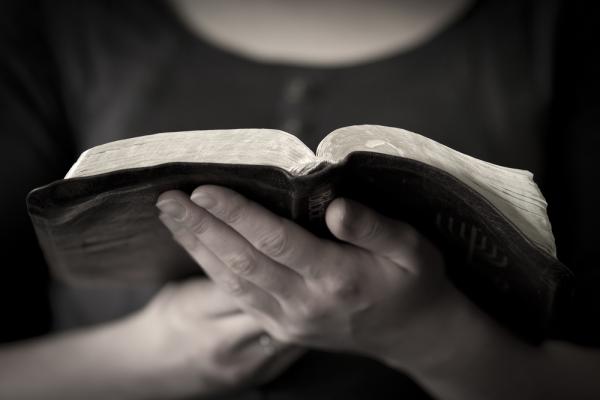Thinking back, I haven’t always been great about getting my car “winterized.” I grew up in fairly temperate Kansas, and mostly parked in a garage at home. There didn’t seem to be too great a chance of the car’s malfunctioning on me, and I was often more interested in where the car was getting me than whether it was in prime shape. I knew the car would never be perfect, but by and large, it seemed functional.
Then I moved to Chicago, where the winters were colder, the streets harder, and a garage a rare luxury. Suddenly winterizing seemed a bit more critical.
Today I am (by virtue of my baptism and in a way specifically called for by my ordination vows) partly in the business of serving as a prophet. Oh, I don’t rate myself as too great of one, but I do think that God has made me a part of that work. I may not be all of Christ’s Body, but I’m a piece of it. So prophecy and transformation are some of my duties too. And the season of Advent has me thinking a bit about whether I do enough to “winterize” my prophecy.
I cannot start a fire. Often, this is the case even with a dry match in my hand.
As a person of relative privilege from the West living in an age of microwaves and igniter switches, this would not generally be a problem, aside from the embarrassment such ineptitude might cause. It would, however, be a problem if I were, say, stranded in the East Tennessee countryside and left to fend for myself against an alliance of desperate, vengeful college students.
Such is the conundrum I face this approaching weekend with my participation in Carson-Newman University’s third annual Hunger Games.
Editor’s Note: This post contains two of many testimonies given at an Environmental Protection Agency (EPA) listening session at EPA headquarters in Washington, D.C. The EPA held sessions in 11 regional offices across the country to allow the public to comment on the agency’s plans to begin regulating carbon dioxide emissions — one of the heat-trapping pollutants that contributes to climate change — from existing coal and natural gas-fired power plants. The public was invited to share up to three minutes of spoken testimony to an EPA panel for the agency’s consideration. We also have multiple other testimonies in parts two and three.
At an emotional worship service, considered one of the largest gatherings of Christians and Jews, some 1,600 British men and women filed into Westminster Abbey Sunday to mark the 75th anniversary of Kristallnacht.
Also known as the Night of Broken Glass, Kristallnacht was a series of coordinated attacks carried out by Nazi paramilitaries and civilians against Jews throughout Hitler’s Germany and parts of Austria between Nov. 9 and 10, 1938.
More than 90 German Jews were killed and 30,000 more sent to concentration camps.
During the hourlong service, a candelabra from the Belsize Square Synagogue in central London was processed through the abbey where England’s kings and queens are buried.
First, the name “Francesco” leapfrogged to No. 1 on the list of the most popular baby names in Italy.
Then, the city of Rome reported a tourism boom, mostly from Latin America.
Now, there’s word Roman Catholic Church attendance is climbing throughout Italy.
Blame it on “the Francis effect.”
Italy’s Center for Studies on New Religions reported Sunday that around half of the 250 priests it surveyed reported a significant rise in church attendance since Cardinal Jorge Mario Bergoglio became Pope Francis in March.
There is a popular African proverb that says, when elephants fight, it is the grass that suffers. This proverb highlights the reality that too often while nations and powerful entities fight amongst themselves, the common people of the land suffer the most. It is a historical truth that those who make the decision to wage wars (military, legislative, or otherwise) often have the least to lose. Sure, they may lose their prestige, position, or power, but in the end their essential well-being and access to basic necessities are maintained. Sadly, the same cannot be said of many of those who are the instruments and casualties of war and political conflict.
Veterans: America’s Suffering Grass
In the United States, a large number of veterans who fought in wars at the command of the political elite have returned home from the battlefield to a life of impoverishment and fickle social services.
When I was a Ph.D. candidate in Yale University’s New Testament program, I had the honor of preaching at an ordination service for a classmate who was being ordained as a Presbyterian minister. Following the service, a number of my classmates asked me why I wanted to spend four-seven years working on a Ph.D. in New Testament when I clearly had a "gift" for preaching. I responded that it was actually my academic study of the Bible coupled with my life experiences that illumined and enlivened my preaching.
I did not grow up reading the Bible. I was almost 19 years old and a U.S. Army soldier stationed in the Federal Republic of Germany when I purchased my first Bible. A series of life-changing events led to me "accepting Jesus Christ as my personal lord and savior." A few months after purchasing my first Bible, I attended a revival service at a local church. I returned to post that evening describing the service to fellow soldiers, who, along with myself, comprised a group self-identified as the "Soul Patrol." We were African-American Christians who strongly believed in the necessity of Christian evangelization.

![Movie Poster for Hunger Games: Catching Fire. Courtesy Lionsgate [United States]](https://sojo.net/sites/default/files/styles/large_rectangle_crop/public/blog/9b07bf94-2ba3-11e3-af40-bc764e10b52f.jpg?itok=LOquaTlS)




